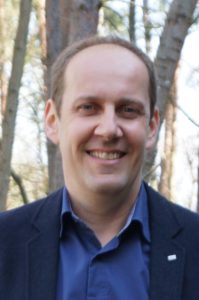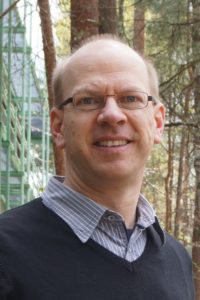FAIRmat: Lifting the treasure trove of materials data
The Chair of Applied Physics at FAU is involved in the FAIRmat project, which was selected on Friday, July 2, 2021 by the Joint Science Conference (Gemeinsame Wissenschaftskonferenz – GWK) in a multi-stage competition of the National Research Data Infrastructure (NFDI). The project will receive funding to set up an infrastructure that helps making materials–science data FAIR: Findable, Accessible, Interoperable, and Reusable. This will enable researchers in Germany and beyond to store, share, find, and analyze data over the long term. During the five-year term, a total of 60 project leaders from 34 German institutions will work together in the FAIRmat consortium.
Prosperity and lifestyle of our society are very much governed by achievements of condensed-matter physics, chemistry, and materials science, because new products for the energy, environment, health, mobility, and IT sectors, for example, largely rely on improved or even novel materials. The enormous amounts of research data produced every day in this field, therefore, represent the treasure trove of the 21st century. This treasure trove is, however, of little value, if these data are not comprehensively characterized and made available. How can we refine this feedstock, in other words, turn data into knowledge and value? For this, a FAIR data infrastructure is a must.
Here is where FAIRmat (“FAIR Data Infrastructure for Condensed-Matter Physics and the Chemical Physics of Solids”) comes in. By building a FAIR research-data infrastructure for the noted fields, the consortium will lift the treasure trove of materials data, and therewith contribute to a disruptive change in the way science and R&D are conducted. FAIRmat deputy spokesperson Matthias Scheffler from the Fritz Haber Institute of the Max Planck Society explains: “We interpret the acronym FAIR in a forward-looking way: Research data should be Findable and Artificial-Intelligence Ready. This new perspective will advance scientific culture and practice. These envisaged changes will advance the scientific culture and practices. They will not replace scientists, but scientists who use such FAIR infrastructure may replace those who don’t.”
FAU’s Chair of Applied Physics is part of the FAIRmat consortium. Prof. Heiko B. Weber and Dr. Michael Krieger, together with Heinz Junkes of the Fritz Haber Institute in Berlin, are developing a universal and easy-to-configure software environment for measurement data acquisition and documentation. “In our field of research, measurement setups with numerous specific measurement devices are often required – in each case adapted to the experimental problem,” explains Prof. Weber. “This diversity requires adaptable and easy-to-configure software for experiment control and data acquisition.” But it’s not just about the raw data. The experiment description, including all settings of the laboratory equipment used, the so-called metadata, is also required. Only in this way, the experiment is documented completely and FAIR, and the valuable measurement data can be re-used by other scientists. “We have already been using prototype software developed at our chair for experiment control with uniform and documented data output for years,” says Dr. Krieger. “In the FAIRmat project, we will bring this successful concept together with the open-source Experimental Physics and Industrial Control System (EPICS), which will handle the recording of data and metadata, storage, archiving and provision of research data according to the standards to be developed in FAIRmat.”
FAU is active in FAIRmat with another project. Prof. Christoph Brabec from the Chair of Materials Science, who also heads the high-throughput photovoltaics research at the Helmholtz Institute Erlangen-Nuremberg as director of the Jülich Research Center, will test, apply and further develop the FAIRmat data collection in the field of semiconductors for optoelectronic applications in practice together with Dr. Thomas Unold from Helmholtz Zentrum Berlin. Prof. Brabec: “The goal is to build up a material encyclopedia by means of automated and, in the future, autonomous laboratories. With the help of the FAIR principle in data and metadata processing, machine learning optimization algorithms can directly access the data and propose and also execute new experiments or trials in real time. Using optoelectronics as an example, the goal is to discover and investigate highly efficient, low-cost, and nontoxic semiconductors with optimal properties for devices and systems for renewable energy generation and conversion.”
FAIRmat is a consortium of the National Research Data Infrastructure (NFDI). The NFDI is a nationwide network that is currently being established and funded with up to 90 million EUR per year from 2019 to 2028 by Germany’s federal and state governments to systematically manage research data.
FAIRmat covers a wide range of research fields in physics and related areas, consequently, basic concepts and measuring techniques, working style, and research data are extremely diverse and heterogeneous. This renders the need for a FAIR data infrastructure as extremely pressing. FAIRmat promotes the efficient sharing of research data (sharing is caring!) and its preparation for reuse and analysis by Artificial Intelligence (AI) tools, enabling a new level, a new quality of science.
For this, FAIRmat follows a bottom-up approach, which is oriented towards the needs of scientists. The consortium is already receiving great support from the community, being well integrated into the Condensed Matter Section of the German Physical Society, the Max Planck Society (e.g., Big-Data Network, CPTS), a large number of universities and institutes as well as various international activities.
“Naturally, we are now looking for highly motivated researchers from domain sciences and IT who share the enthusiasm for a paradigm shift in the fundamental materials science to strengthen our team and realize the FAIRmat principles together with us”, says FAIRmat’s spokesperson Claudia Draxl.
To find out more about FAIRmat, visit https://www.fair-di.eu/fairmat
To join the FAIRmat team, visit https://nomad-lab.eu/career
To find out more about the NFDI, visit www.dfg.de/nfdi
Further information:


